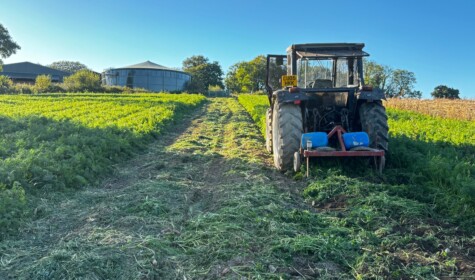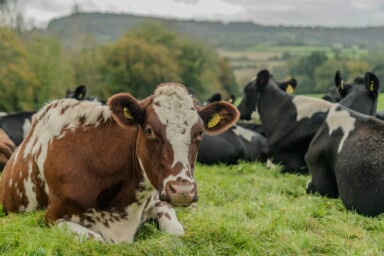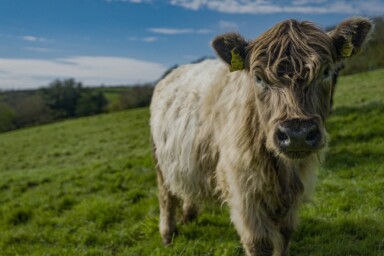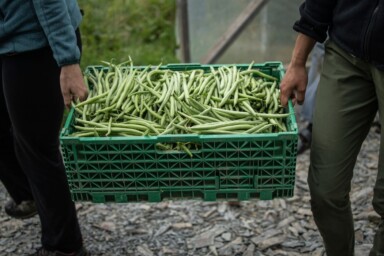Over the past decade or so, there has been a resurgence of interest in the improvement of school food – spearheaded in many ways by Jamie Oliver’s call to arms for better school dinners and Henry Dimbleby’s School Food Plan, published in 2013, mapping out a way forward for better meals in schools. Since then, however, some 60% of schools across the nation have fallen by the wayside in their pursuit of healthy school meals. But across Wales, there has been a sea of change and meaningful progress. The SFT’s CEO, Patrick Holden, discusses school food and his return to growing carrots.
If you had asked me a year ago whether it might come to pass that I would be growing organic carrots along with seven other growers to supply Carmarthenshire schools, supported by the Welsh Government and food wholesaler, Castell Howell, I would’ve said ‘that will never happen’. It turns out that I would have been wrong.
Our involvement with the Welsh Veg in Schools pilot, sponsored by Food Sense Wales, Farming Connect, Welsh Government and Castell Howell has tempted me back into carrot production after an 18-year break, which speaks volumes for the initiative and vision shown by the organising partners.
The pilot is grappling with a very serious challenge. Since I first started growing carrots in 1979, supplying bunches to the local Co-op in Lampeter, there was infrastructure in place to support and enable local food to be supplied to local people. This has disappeared, not to mention the specialised machinery which producing such food requires.
“… it seems UK farmers and growers are congenitally challenged when it comes to collaboration, and we should not let past experiences overshadow a potential new chapter in connecting people to good local food.”
The reason why we have been able to grow carrots successfully this year owes much to the friendship and partnership shown by other local growers, notably Nathan Richards of Troed y Rhiw Organics and Peter and Anne Segger from Blaencamel, both of whom have lent me the necessary equipment without which it would have been impossible to restart carrot production on our farm.
It would also be true to say that without Castell Howell’s willingness to go several extra miles, literally, in their vans to pick up our carrots directly from the farm and take them to a washer and processor, the project would be unviable. However, for the pilot to turn into a long-term solution to relocalising food systems, there is still a long way to go! On the grower and farmer side, we need to form local or regional collaborations to purchase expensive equipment and machinery which is necessary to grow diverse vegetables on a commercial scale. Not only that, but we also need to work together rather than compete with each other on getting the vegetables to the relevant market. This might sound straightforward, but from experience it seems UK farmers and growers are congenitally challenged when it comes to collaboration, and we should not let past experiences overshadow a potential new chapter in connecting people to good local food.
After the farm gate, a similar collaborative effort is required, not just between the wholesale and distribution companies but also small abattoirs, meat cutting plants and everyone who forms part of a food distribution system that is currently highly industrialised and centralised.
In the case of Castell Howell, it is immediately obvious that they are not making money from the pilot – quite the reverse. They have decided, probably for a number of reasons – partly personal conviction, partly investment in a more sustainable system – that it is good to be in at the beginning, even if the project is, in effect, funded by profits made elsewhere within their business. Good for them, I say!
I feel immensely proud to be part of this pilot. Recently, we hosted a school visit with the children from years 3 and 4 at Ysgol Y Dderi, our local primary school. They came into the carrot field where I and my sons, Harry, Will and Ben, were harvesting carrots, topping them and putting them into crates to go to local schools. It was an idyllic scene, amidst glorious sunshine, and we let the children have a go at helping us with the harvest. Afterwards, around half of them said they would like to come and work on the farm when they are older – which is an amazing outcome from just 15 minutes in the carrot field, an experience that will probably stay with them for life.







